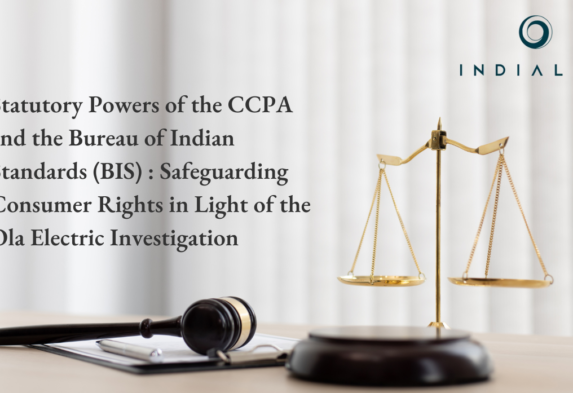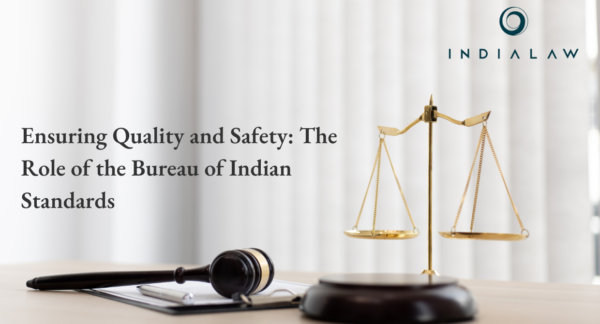Statutory Powers of the CCPA and the Bureau of Indian Standards (BIS) : Safeguarding Consumer Rights in Light of the Ola Electric Investigation


In India, the protection of consumer rights and the assurance of product quality are critical objectives upheld by various regulatory bodies. Among these, the Central Consumer Protection Authority (CCPA) and the Bureau of Indian Standards (BIS) play pivotal roles. Recent events involving Ola Electric have highlighted the functions and powers of these organizations, particularly in investigating quality concerns and protecting consumer interests. This article explores the statutory powers of the CCPA, the investigative authority of the BIS, and the implications of their actions in the context of consumer protection.
Table of Contents
The Ola Electric Context
Ola Electric, a prominent player in the electric vehicle market, recently came under scrutiny for alleged deficiencies in its after-sales service and the quality of its products. Complaints from consumers prompted the CCPA to take action, leading to a directive for the BIS to investigate these concerns. This incident underscores the collaborative framework between CCPA and BIS in addressing issues that directly impact consumer safety and satisfaction.
Powers of the CCPA
The Central Consumer Protection Authority (CCPA) was established under the Consumer Protection Act, 2019, with a mandate to promote and enforce consumer rights. Key powers of the CCPA include:
Investigative Authority: Under Section 18(2)(a) of the Consumer Protection Act, the CCPA can initiate inquiries and investigations into practices that infringe on consumer rights. This provision enables the authority to intervene in cases where consumers have reported unfair trade practices or substandard products, as seen in the Ola Electric situation.
Consumer Protection Actions: The CCPA can take action against unfair or misleading advertisements, ensure compliance with consumer laws, and promote awareness about consumer rights. It acts as a guardian for consumers, particularly when violations arise from reputed brands.
Powers of the BIS
The Bureau of Indian Standards (BIS) serves as the national standards organization under the BIS Act, 2016, tasked with ensuring that products and services meet specific quality standards. Key provisions include:
Quality Investigation Authority: Section 16 allows the BIS to investigate the quality of goods and services and take necessary steps to enforce compliance with its standards. This provision is crucial for addressing concerns like those raised against Ola Electric regarding its product quality and service standards.
Certification and Compliance: Under Section 13, BIS has the authority to issue quality certification and ensure that products conform to Indian Standards (IS). Compliance with these standards helps safeguard consumer interests by ensuring that marketed products are safe and reliable.
Who Can Order an Investigation by BIS?
Investigations under Section 16 of the BIS Act can be initiated by:
- The Central Government: It can direct the BIS to investigate specific quality issues affecting consumers.
- BIS itself: The organization can launch inquiries based on its findings or consumer complaints.
- Regulatory bodies like the CCPA: Entities like the CCPA can request the BIS to conduct investigations based on consumer complaints or concerns, as demonstrated in the Ola Electric case.
Penal Provisions under the BIS and Consumer Protection Act
Both the BIS Act and the Consumer Protection Act contain provisions to penalize violators:
BIS Act:
Section 29 details penalties for manufacturing or selling goods not conforming to IS standards, including fines and potential imprisonment for serious offenses.
Section 31 allows for the cancellation of licenses or registrations if manufacturers fail to comply with BIS standards.
Consumer Protection Act:
Amongst other provisions, Section 88 of the Consumer Protection Act, 2019 specifically deals with “Penalty for Non-Compliance of Direction of the Central Authority”
Whoever, fails to comply with any direction of the Central Authority under sections 20 and 21, shall be punished with imprisonment for a term which may extend to six months or with fine which may extend to twenty lakh rupees, or with both.
Conclusion
The recent orders by the CCPA for investigation into consumer complaints involving Ola Electric serves as a significant example of how the CCPA and BIS collaborate to protect consumer rights in India. As consumer complaints rise regarding product quality and service standards, the roles of these regulatory bodies become increasingly critical. The statutory powers afforded to the CCPA and BIS empower them to take decisive actions to investigate, enforce compliance, and penalize violators, ultimately fostering a marketplace that prioritizes consumer safety and trust. As awareness of consumer rights continues to grow, the effectiveness of these statutory provisions will be crucial in promoting responsible business practices and ensuring that consumers receive the quality and service they deserve.
For any further details please write to contact@indialaw.in




